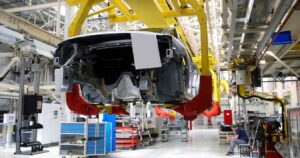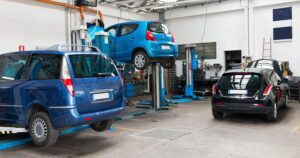When it comes to our beloved automobiles, regular maintenance is crucial for their longevity and performance. A vital part of this maintenance routine is a comprehensive car service. But one question often lingers in the minds of car owners: “How long does a car service take?”
In this article, we will delve into the various aspects of a car service, including its frequency, benefits, duration, and cost. So, buckle up and let’s explore the world of car servicing!
Table of Contents
ToggleHow Often Should a Car Be Serviced?
To ensure your vehicle remains in optimal condition, it is recommended to have it serviced regularly. The frequency of car servicing depends on several factors, including the vehicle’s age, mileage, and manufacturer’s recommendations.
Typically, it is advisable to schedule a car service every 6,000 to 12,000 miles or every 6 to 12 months, whichever comes first. Regular servicing helps identify potential issues before they turn into major problems, keeping you safe on the road and potentially saving you from costly repairs down the line.
Regular car servicing not only helps maintain the performance of your vehicle but also keeps your warranty intact. Many manufacturers require regular servicing as a condition for warranty coverage.
By adhering to the recommended service intervals, you ensure that your car is in compliance with warranty terms and conditions, providing you with peace of mind.
What Are Some Common Issues That a Full Car Service Can Detect?
During a full car service, trained mechanics perform a thorough inspection of various components and systems in your vehicle. This meticulous examination allows them to detect potential issues that might go unnoticed otherwise.
By addressing these issues early on, a full car service can prevent small problems from escalating into major malfunctions, keeping you and your vehicle safe on the road.
Some common problems that a full car service can detect include:
- Brake wear and tear: Regular inspections can identify worn-out brake pads, leaking brake fluid, or any other brake-related issues that may compromise your vehicle’s stopping power. Brake problems can be dangerous and should be addressed promptly to ensure your safety.
- Engine performance: A comprehensive service includes checking the engine’s performance, looking for signs of reduced power, unusual noises, or fluid leaks. Detecting engine issues early can prevent breakdowns and costly repairs.
- Suspension and steering: A thorough inspection ensures that your vehicle’s suspension and steering components are in good condition, ensuring a smooth and controlled ride. Damaged suspension or steering parts can affect your vehicle’s stability and handling, posing a safety risk.
- Fluid levels and leaks: Mechanics will check fluid levels such as engine oil, coolant, transmission fluid, and brake fluid, ensuring they are at the correct levels and free from leaks. Inadequate fluid levels or leaks can lead to engine overheating, transmission problems, or brake failure.
- Tire condition: Car servicing includes examining the tread depth, tire pressure, and overall tire condition to ensure optimal grip and safety. Worn-out or improperly inflated tires can compromise your vehicle’s handling and increase the risk of accidents.
- Electrical system: A full car service also involves inspecting the electrical system, including lights, battery, and wiring, to ensure they are functioning properly. Electrical issues can cause various problems, from dim headlights to engine starting difficulties.
By conducting these comprehensive inspections, a full car service provides you with valuable insights into your vehicle’s overall health, allowing you to address any potential issues promptly.
What Are Some Things to Do While Waiting for a Car Service?
Waiting for your car to be serviced doesn’t have to be a dull and tedious experience. Here are a few things you can do to make the most of your time:
- Catch up on your reading: Bring a book or e-reader along to indulge in some literary adventures. Whether it’s a gripping novel or a self-improvement book, immersing yourself in a good read can make the wait more enjoyable.
- Stay connected: Take advantage of the free Wi-Fi available at most service centers to catch up on emails, surf the web, or stream your favorite shows. Stay connected with friends and family or use the time to browse social media and stay updated on the latest news.
- Get some work done: If you have pending tasks or projects, use this time to knock a few items off your to-do list. Bring your laptop or tablet and make progress on your work or personal projects. You’ll feel productive and accomplished by the time your car is ready.
- Enjoy some downtime: Pamper yourself with a relaxing session of meditation, listen to music, or simply take a moment to unwind and recharge. Use the waiting time as an opportunity to disconnect from the hustle and bustle of daily life and focus on self-care.
Remember, the duration of a car service can vary, so make sure to check with the service center beforehand to plan your activities accordingly. Some service centers may also offer amenities such as coffee or waiting areas with comfortable seating, making your wait more comfortable and enjoyable.
What Is Included in a Full Car Service?
A full car service entails a comprehensive inspection and maintenance of various vehicle components. While the exact details may vary between service centers, a typical full car service usually includes:
- Oil and filter change: Fresh engine oil and a new oil filter ensure optimal lubrication and protect your engine against premature wear. Regular oil changes are essential for maintaining engine performance and longevity.
- Fluid checks and top-ups: Mechanics inspect and top up essential fluids such as coolant, brake fluid, power steering fluid, and transmission fluid as needed. Adequate fluid levels are crucial for the proper functioning of various systems in your vehicle.
- Brake inspection: Brake pads, discs, and other components are examined for wear and tear, ensuring your brakes are in top-notch condition. Brake fluid levels are checked, and any necessary adjustments or replacements are made.
- Suspension and steering check: Mechanics inspect suspension and steering components for any signs of damage or misalignment. They also ensure that steering is responsive and the vehicle’s ride quality is smooth.
- Tire rotation and pressure check: Tires are rotated to ensure even wear and the correct tire pressure is set to maintain optimal performance and fuel efficiency. Properly inflated and balanced tires contribute to a safe and comfortable driving experience.
- Battery inspection: The battery’s health and charge level are checked, and any necessary maintenance or replacement is performed. A well-functioning battery ensures reliable starting power for your vehicle.
- Lights and electrical systems: All lights, indicators, and electrical systems are inspected to ensure they are functioning correctly. This includes headlights, taillights, brake lights, turn signals, and interior lights. Faulty lights can compromise visibility and safety on the road.
This comprehensive range of checks and maintenance ensures that your vehicle operates efficiently, reducing the risk of breakdowns and extending its lifespan.
How Long Does a Full Car Service Usually Take?
The duration of a full car service can vary depending on various factors, including the type of service, the service center’s workload, and the complexity of your vehicle. On average, a full car service can take anywhere from one to three hours.
However, it’s essential to note that this is just an estimate, and the actual duration can be influenced by unforeseen issues that may require additional attention. To get a more accurate timeframe, it’s advisable to consult with your chosen service center.
Some service centers offer express or same-day services, which may have shorter turnaround times. However, these services may be limited to specific types of maintenance and may not cover the same level of comprehensive inspections as a full car service.
It’s important to discuss your needs and preferences with the service center to ensure you receive the appropriate level of service for your vehicle.
How Much Does a Car Service Cost?
The cost of a car service can vary based on factors such as the type of service, the service center’s location, and the make and model of your vehicle. A basic service, such as an oil change and inspection, can range from $50 to $100, while a more comprehensive full car service can cost anywhere from $150 to $400 or more.
It’s important to note that these are general estimates, and prices can vary significantly based on your specific requirements and the service center you choose.
Factors that can influence the cost of a car service include the level of maintenance needed, the complexity of your vehicle’s systems, and any additional repairs or part replacements required.
Some service centers may offer service packages that include various maintenance tasks at a bundled price, providing potential cost savings compared to individual services.
To get an accurate quote for your car service, it’s best to contact local service centers and inquire about their pricing. Provide them with details about your vehicle and the specific services you require to receive an estimate tailored to your needs.
Conclusion: Keeping Your Vehicle in Prime Condition
Regular car servicing is vital for maintaining the health and performance of your vehicle. It allows trained professionals to detect potential issues early on, ensuring your safety and potentially saving you from costly repairs.
While the duration and cost of a car service may vary, the benefits of this maintenance routine far outweigh the inconvenience. By adhering to the recommended service intervals, you invest in the longevity and reliability of your vehicle.
So, be proactive and prioritize the care of your vehicle by scheduling regular car services. Your car will thank you with reliability, longevity, and peace of mind on the road ahead. Remember, a well-maintained vehicle not only performs better but also provides a safer and more enjoyable driving experience. Take care of your car, and it will take care of you.
























